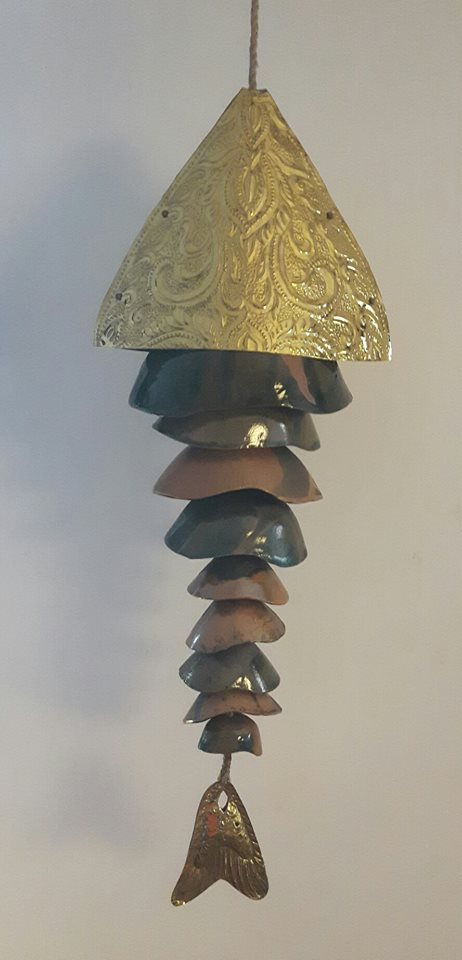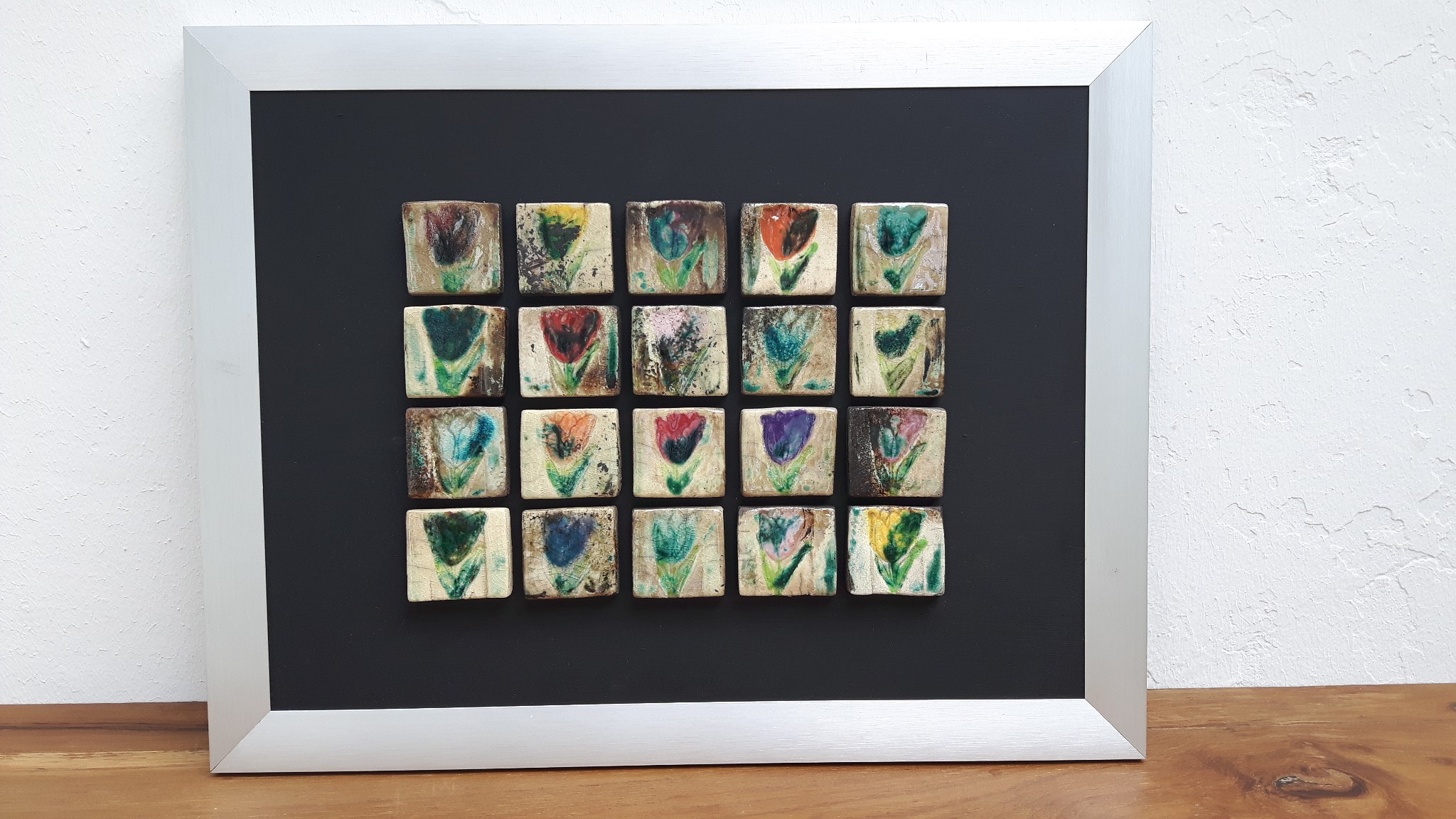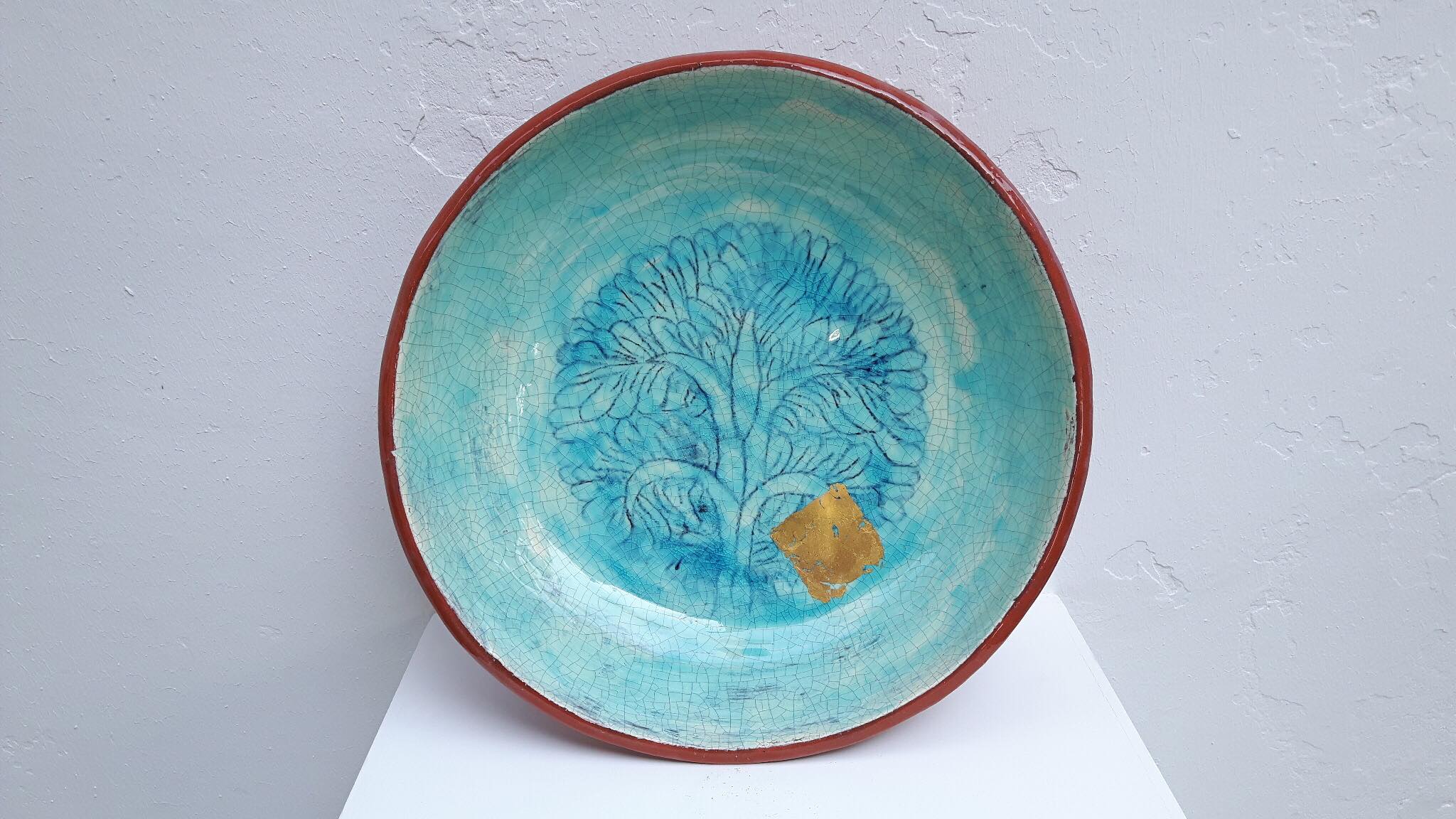The Irrawaddy Magazine |
- KIA, Tatmadaw Hold Peace Talks in China
- NMSP Says Pledge To Sign Peace Deal Is Not An Agreement To Lay Down Its Arms
- Yangon Police Arrest 4 Suspects in Murder of Former Mrauk-U Official
- How the Suu Kyi-Richardson Clash Unfolded
- Tax Rate to Export, Import Jewelry Remains Unclear
- Molotov Cocktail Thrown at Daw Aung San Suu Kyi’s Residence
- Dutch Porcelain Artist Finds Endless Inspiration in Myanmar People, Culture
- Beijing Treated to Super Lunar Eclipse Not Seen Since Qing Dynasty
- Southeast Asia a “Hotspot” for Antibiotic Abuse, FAO Official Says
- Myanmar to Double Electricity Capacity by 2021 to Fill Power Shortages
| KIA, Tatmadaw Hold Peace Talks in China Posted: 01 Feb 2018 07:03 AM PST CHIANG MAI, Thailand – Amid a weeks-long surge in fighting in parts of Kachin State under the control of the Kachin Independence Army, the KIA and leaders of Myanmar's military, or Tatmadaw, met for talks in China's Yunnan province on Thursday. The talks are at the military-to-military level and being conducted with the support of China, according to sources close to the peace process who spoke on condition of anonymity. The two sides were headed by Lieutenant-General Tun Tun Naung, the head of the Defense Ministry's Bureau of Special Operations 1, and Kachin Independence Organization/Army (KIO/KIA) chairman N'Ban La, according to Kachin News. No one from the government's Peace Commission, which handles most peace negotiations, was present at the talks, as the KIA reportedly requested that the talks be limited to representatives of the two sides. Renewed fighting flared up between the Tatmadaw and KIA in areas controlled by the latter's Brigade 2 in Tanai Township, and Brigade 3 in Mansi Township. The Tatmadaw recently seized the KIA's in Nam Gun, at the confluence of the Tanai tributary and the Nam Gun tributary. The fighting trapped about 3,000 people in the Nam Gun gold mining area of Tanai. Of those about one-third have been able to leave for more secure areas. Sr. Naw Tawng, a member of the local emergency relief provision committee for IDPs, told The Irrawaddy that the Tatmadaw checkpoints have been permitting civilian travel since Tuesday. To exit Tanai, the trapped gold and amber mine workers must pass through checkpoints where they are subject to lengthy inspections by soldiers. So far around 1,000 civilians have arrived at temporary shelters outside the township, according to local relief workers. About two-thirds of them remain stranded in Nam Gun and are facing shortages of food and drinking water, Sr. Naw Tawng said, citing testimony from those arriving in Tanai. "They told us they had not had enough food or water [in Nam Gun] since Jan. 28," he said. With many still stranded there, health problems are becoming a serious concern. On Tuesday, mostly women, children and older men were allowed to pass, but on Wednesday a few young men were among the arrivals in Tanai. Only after being checked were they allowed to take the ferry to Tanai. The journey costs 10,000 MMK per person, Sr. Naw Tawng said. Since Sunday, some of those who are stranding without shelter nor enough food had been risking their lives by walking through the jungle, which is strewn with land mines, according to Father Vincent Shawng Lwan of the Sumprabum Justice and Peace Commission. Four miners were reportedly killed in Tatmadaw bombing raids a week ago. The sound of artillery shelling and aerial bombardment could still be heard coming from Tanai as recently as Wednesday, local relief workers said The post KIA, Tatmadaw Hold Peace Talks in China appeared first on The Irrawaddy. |
| NMSP Says Pledge To Sign Peace Deal Is Not An Agreement To Lay Down Its Arms Posted: 01 Feb 2018 06:14 AM PST Signing the Nationwide Ceasefire Agreement (NCA) is not an agreement to disarm, the New Mon State Party (NMSP) said in a statement issued to mark the 71st Mon National Day. Thousands of ethnic Mon in Myanmar and abroad celebrated their national day today in Mon State and other parts of the country including Yangon, where NMSP leaders explained their decision to formally participate in the peace process. "To participate by signing the NCA does not mean we will disarm or that it is even our goal," said the statement from the NMSP. The NMSP intends to walk down the road of political dialogue by attending the upcoming Panglong peace conference, as only by working together with other ethnic political groups and democracy forces can we amend the 2008 constitution, which has written by the former military regime, be successfully amended to reflect the interests of all, the statement said. NMSP leaders promised the government at a meeting in Napyitaw last month that they would sign the NCA in February. The Lahu Democratic Union (LDU), another ethnic group, also pledged to sign the accord at the same time. Some ethnic Mon have voiced disagreement with the decision by the NMSP leadership to commit to the NCA instead of waiting to sign it with the four other members of the United Nationalities Federal Council (UNFC). Because of this, the NMSP wanted to take the opportunity to explain its political stand on Mon National Day. In its statement, the group's leaders said they tried to stand with their UNFC allies but some of the members had opted to side with the Northern Alliance armed groups, insisting on their inclusion in the peace process as a condition for signing the NCA. Furthermore, the NMSP's base is in an isolated area in southern Myanmar, making it difficult to cooperate with other ethnic armed groups in the alliance. "Our goal is to have democracy and a federal system under which all ethnic people have equal rights and self-determination," the statement said. The NMSP signed its first ceasefire agreement in 1995 under the military dictatorship of U Than Shwe. They then signed a second ceasefire in 2012 during the time of the U Thein Sein's government. But dealing with the NLD government and the two former governments was different, party leaders said. The NLD government and the military have the same view that all ethnic armed groups need to sign the NCA. Therefore, it is difficult to deal with them, said Nai Ong Ma-Nge, an NMSP leader, who gave a speech at the 71st Mon National Day held in Mahachai, just outside Bangkok. Some ethnic Mon questioned why the NMSP had agreed to sign the NCA without first seeking the opinions of the Mon people. Nai Ong Ma-Nge said that if the NMSP does not sign the NCA those who deal with the party can be charged with unlawful association at any time. Therefore, he said, his group went to meet the government in Naypyitaw on Jan. 23, and told administration representatives they would call a public meeting before signing the NCA. Yesterday, the Myanmar government released five NMSP members who had been imprisoned in Kyaikmayaw town ahead of the NMSP signing the NCA. The Office of State Counselor Daw Aung San Suu Kyi also sent a letter to the NMSP to express her government's best wishes on Mon National Day. Her letter expressed the desire that the Mon would cooperate with other ethnic groups to work toward a federal system in the country. The post NMSP Says Pledge To Sign Peace Deal Is Not An Agreement To Lay Down Its Arms appeared first on The Irrawaddy. |
| Yangon Police Arrest 4 Suspects in Murder of Former Mrauk-U Official Posted: 01 Feb 2018 05:51 AM PST YANGON — Yangon police have arrested four suspects in the murder of a government official who had recently been transferred from his post in a Rakhine State township where police shot and killed seven protesters earlier this month, the Ministry of Home Affairs announced Wednesday. Bo Bo Min Theik was found dead with multiple stab wounds to his chest near the highway running through Rakhine's Ponnagyun Township on Tuesday evening. He was a government official in Rakhine's Mrauk-U Township when local authorities there ordered a violent crackdown on a protest on Jan. 16 that resulted in the fatal shooting of seven people. Amid public outrage over the shootings, Bo Bo Min Theik was transferred to the state capital Sittwe three days later. The ministry's report says police received a tip that one of the suspects, Ko Min Than Htay, 20, son of the former administrator of Mrauk-U Township's Tein Nyo village, U Kyaw Myint, was planning to visit his youngest brother on Wednesday in Yangon, where they arrested him at a bus stop. The same day, at 7:40 p.m., Yangon police arrested U Kyaw Myint, who now runs a local furniture shop, along with his wife Daw Kyi Kyi Win and daughter-in-law Ma Khine Zar Hlaing, 20, at a Buddhist nunnery. The police also confiscated two cars belonging to the suspects, along with 75 million kyats ($56,476), and have been questioning them. The ministry report did not say whether Bo Bo Min Theik was murdered over a personal dispute with U Kyaw Myint's family or whether they even had a relationship. It also did not say whether the victim or any of the suspects owned the car in which the body was found. Rakhine residents are demanding that the union government launch an independent investigation into the police shootings in Mrauk-U with the help of recognized human rights experts, civil society representatives, lawmakers and other relevant government officials. The Rakhine State Parliament has already established an investigation team of local lawmakers. State government Secretary U Tin Maung Swe told The Irrawaddy that Bo Bo Min Theik had been summoned by the Mrauk-U police inspector for questioning over the deadly police crackdown on Jan. 25 and was returning to Sittwe on the afternoon of Jan. 30 in his friend's car. It is not clear who was driving. Some Mrauk-U residents say Bo Bo Min Theik and U Kyaw Myint were once close friends and even celebrated the Water Festival together last year. U Kyaw Moe Oo, the administrator of Tein Nyo village, said U Kyaw Myint's daughters, who live in the village, also claim that their father had been on a trip to Yangon since Jan. 28. That would place him outside of Rakhine State at the time of the murder. U Hla Maung Gyi, a farmer in Yoe Ngu village, said he witnessed the car Bo Bo Min Theik was in get into an accident and saw three people flee the scene into the surrounding forest. "Three people entered the forest but I have no idea who they are," he said. Once informed of the incident, Ponnagyun police arrived at the crime scene at 6 p.m. and identified the body based on documents inside the car. While they were transporting the body to the Ponnagyun hospital, a group of people arrived at the car by motorbike and torched it, according to the ministry report. Bo Bo Min Theik's funeral is being held in Sittwe this afternoon. Rakhine State Chief Minister U Nyi Pu and some cabinet members paid their respects. Min Aung Khine contributed reporting from Sittwe. The post Yangon Police Arrest 4 Suspects in Murder of Former Mrauk-U Official appeared first on The Irrawaddy. |
| How the Suu Kyi-Richardson Clash Unfolded Posted: 01 Feb 2018 05:24 AM PST YANGON — When State Counselor Daw Aung San Suu Kyi and former New Mexico governor Bill Richardson met again late last month, a public row was probably the last thing these two old friends expected. Their friendship dates back to 1994, when she was under house arrest and he was one of the first visitors outside of her immediate family that she received. Since 2012, Richardson's Center for Global Engagement has conducted multi-party political and governance training in Myanmar. When Richardson was among five prominent international figures appointed to the Advisory Board for the Committee for Implementation of the Recommendations on Rakhine State last year, the 71-year-old was a natural choice. Given his long involvement with and apparent knowledge of Myanmar, his credentials seemed sound. So expectations were high when the Advisory Board and State Counselor Daw Aung San Suu Kyi met for the first time on Jan. 22 at the Ministry of Foreign Affairs in Naypyitaw. The board members, five local and five international, were meeting on the basis that all would come with an open mind, ready to listen to all perspectives and learn from them in order to formulate collective recommendations for the Implementation Committee over the next few months. The recommendations were to be made in the best interests of conflict-torn Rakhine State. In a statement released after the meeting, the government said simply that "matters relating to the implementation of the recommendations on Rakhine State and the work plan of the Advisory Board were discussed." The accompanying photographs show everybody apparently at ease, with Daw Aung San Suu Kyi in the center surrounded by the Advisory Board members, including Richardson, beaming warmly at the camera.  Behind the smiles, however, there was anger, surprise, recrimination and a sense of disrespect following an angry complaint from the former New Mexico governor to Daw Aung San Suu Kyi over the last-minute cancellation of his meeting with the home affairs minister, at which he had sought to discuss the fate of two Reuters journalists detained over alleged violations of the Official Secrets Act. The board members, unaware that he had requested the meeting, were taken aback by Richardson's complaint, diplomatic sources with knowledge of the meeting told The Irrawaddy. "Adopting an angry manner towards Daw Aung San Suu Kyi, he protested that his meeting with the home affairs minister was not going ahead, as though she had something to do with it," one of the sources said. "No one should show disrespect or rudeness to a national leader, even when disagreeing with them," this source added. While she is not the president of Myanmar as she is ineligible for the office under the Constitution, Daw Aung San Suu kyi has been the de facto leader of Myanmar since her National League for Democracy party won a landslide victory in the 2015 general election. At the advisory meeting, Richardson participated in the conversation but seemed preoccupied with the journalists, one of the sources said. The State Counselor responded in a firm and clear way that the case of the reporters was not within the scope of the advisory board's work. "If he knew Myanmar well, he would know who controls the Home Affairs Ministry," said the same source, referring to the fact that the ministry is one of the three military-controlled institutions in Myanmar over which the government has little or no authority. Advisory Board chairman Dr. Surakiart Sathirathai told state media on Thursday that Richardson might have come with the preconceived goal of securing the release of the Reuters reporters. "He did not raise that in the Advisory Board at all, but he raised it with the State Counselor. It is not in the mandate of the advisory board. The board was not consulted formally in the three meetings that we had," he said. After the meeting, Daw Aung San Suu Kyi invited the four other international board members — Richardson was excluded — to her home to say she was sorry that the exchanged had happened. At a dinner later that night at Shwe San Eain Hotel, Richardson behaved badly and appeared drunk, according to three sources. He verbally attacked Dr. Surakiart, accusing him of not standing up for him. The State Counselor was present at the dinner.  "Richardson's behavior at the dinner table was unacceptable," said someone who attended the dinner. "Daw Suu didn't respond to his behavior at the dinner," the source added. Witnesses told The Irrawaddy that Dr. Surakiart found Richardson's behavior unacceptable and told him to calm down. After the dinner, Myanmar National Security Adviser U Thaung Tun was seen visiting the former governor's room at the Thingaha Hotel for talks. When the Advisory Board members left for Rakhine on Jan. 24, Richardson was nowhere to be seen. In fact, he was on his way to Yangon. On Jan. 25, he released a statement announcing his resignation from the board, which in his view was "likely to become a cheerleading squad for government policy" and adding that he was "extremely upset" at the State Counselor's reaction to his request that she address the situation of the two Reuters journalists swiftly and fairly. He adds in the statement that "the absence of Daw Suu's moral leadership on this critical issue is of great concern." "The board members heard of his statement after the visit to Rakhine State, which he didn't attend," one of the sources said. In response to the statement, the Ministry of the Office of the State Counselor announced that evening that it appeared Richardson's intent had not been to provide advice to benefit Rakhine State, "but to pursue his own agenda." "In view of the difference of opinion that developed, the government decided that his continued participation on the Board would not be in the best interest of all concerned," the announcement reads. Dr. Win Myat Aye, the chairman of the Committee for Implementation of the Recommendations on Rakhine State, told The Irrawaddy that Richardson raised an issue not directly related to the Implementation Committee's work. "The advisory board is supposed to advise our committee, not on other things. We want people who can advise and help our implementation," he said. Richardson's branding the panel as an instrument of "whitewashing and cheerleading" also prompted responses from the board members. At an urgently arranged press conference on Thursday, panel member Roelf Meyer said the meeting had been the first by the board members in Myanmar and they had not yet agreed to submit any advice to the implementation committee.  "Therefore, any statement about the Advisory Board 'whitewashing' or 'cheerleading' for anyone lacks complete legitimacy," the former South African minister of constitutional development and provincial affairs said. A statement issued at the press conference said the board would offer its preliminary reflections as advice to the Implementation Committee. On the same day, Surakiart said he thought Richardson's characterization of the Advisory Board — which the governor had shared with international media — as "whitewashing", representing or protecting the Myanmar government, was unfair. "We don't intend to be the cheerleader of the government or the lead cheerleader of the international community," Surakiart said. The Advisory Commission on Rakhine State led by former UN Secretary-General Kofi Annan released its final report with 88 recommendations in August 2017. The Committee for Implementation of the Recommendations on Rakhine State comprising representatives from the relevant ministries headed by the Union minister for social welfare, relief and resettlement has been implementing the recommendations. The Advisory Board was formed with national, regional and international experts on Dec. 14, 2017 to support the work of the Implementation Committee. In comments that seem to backtrack from his accusations against Daw Aung San Suu Kyi, the former New Mexico governor said on Jan. 26 that she remains Myanmar's best hope for change, and advised Western governments to continue to engage with her. The post How the Suu Kyi-Richardson Clash Unfolded appeared first on The Irrawaddy. |
| Tax Rate to Export, Import Jewelry Remains Unclear Posted: 01 Feb 2018 01:41 AM PST YANGON — The Ministry of Commerce gave the go-ahead for the legal import and export of jewelry items on Jan. 22, but local gems merchants are still unclear about the tax rate. "It is good that importing and exporting jewelry has been legalized, but at the moment, we are still not sure about the tax rate," U Aung Hsan Win, owner of Aung Thamardi Gold Shop, told The Irrawaddy. For more than a decade, Myanmar's gold has been smuggled into China and India across the border, he said, adding that the government should set an appropriate tax rate in consultation with gold miners, transporters and gold merchants. "I welcome both the export and import of gold and gems. But if the tax is too high, there will be tax evasion. Merchants will be willing to pay if the government levies small tax amounts over numerous instances rather than a high tax all at once," said central executive committee member U Win Myint of the Myanmar Gems and Jewelry Entrepreneurs Association (Yangon). The Myanmar government has lost large sums of money in tax revenue from the smuggling of gems over the border, he said. "If the tax rate is low, merchants will export legally rather than smuggle." Though the export/ import license is issued by the Commerce Ministry, other ministries such as the Mines Ministry and Customs Department under the Ministry of Planning and Finance should also collaborate in the process, he suggested. The government should also adopt an insurance system for the export and import of gold and jewelry items, he said. Meanwhile, Myanmar is also establishing its first official market for gold, gems and metal trading in commercial capital Yangon. The official gold market has been in the works for three years, and various ministries and agencies, including the Ministry of Planning and Finance, Ministry of Natural Resources and Environmental Conservation, Ministry of Commerce, Central Bank of Myanmar, Myanmar Federation of Mining Association and Myanmar Gold Entrepreneurs have been collaborating in its creation. Translated from Burmese by Thet Ko Ko. The post Tax Rate to Export, Import Jewelry Remains Unclear appeared first on The Irrawaddy. |
| Molotov Cocktail Thrown at Daw Aung San Suu Kyi’s Residence Posted: 31 Jan 2018 11:47 PM PST YANGON — The Yangon residence of Myanmar's State Counselor Daw Aung San Suu Kyi in Bahan Township came under attack on Thursday morning while she was in Naypyitaw. According to initial reports, a man threw a bottle of petrol into the compound of Daw Aung San Suu Kyi's residence No. 54 on University Avenue Road between 6 a.m. and 6:30 a.m. on Thursday. "It took place around 6:30 at dawn. As far as I know, he threw a Molotov cocktail over the wall into her compound and ran away," U Thaung Htut, a Bahan Township lawmaker, told The Irrawaddy.  Police said a water pipe near a guard's house was burned in the attack, the lawmaker said, adding that three or more people might be involved according to CCTV records. Police have opened a case under Article 436 of Penal Code. The culprit(s) shall be punished with transportation for life, or with imprisonment up to 10 years and also a fine if found guilty for mischief by fire or any explosive substance with intent to destroy property. "Police are looking for the suspects according to procedure. There were security guards [when the attack happened]. Police are investigating and checking CCTV records," said U Zaw Htay, spokesperson of the President's Office. Meanwhile, Daw Aung San Suu Kyi was in Naypyitaw attending the second anniversary of the national legislature. Police have sketched out the appearance of a suspect and urged members of the public to inform them of any information. According to the police, the suspect is a stout man, about 40 years old and 5 feet 6 inches tall, with black hair and a dark complexion.  The post Molotov Cocktail Thrown at Daw Aung San Suu Kyi's Residence appeared first on The Irrawaddy. |
| Dutch Porcelain Artist Finds Endless Inspiration in Myanmar People, Culture Posted: 31 Jan 2018 09:59 PM PST Ceramist Ilona Van de Braak is not content to study Myanmar's people and culture by reading books and surfing the Internet. The Dutch artist has traveled extensively across the country, meeting and talking to people first hand. She respects Myanmar artists, collects cultural objects, and interviews local artists in their studios. "There is not a day that goes by that Myanmar does not inspire me; the people, the colors and its nature. I feel fortunate to be part of it," she said. As a ceramist, she has visited the pottery workshops in Yangon's Twante Township monthly for two years, and shared her techniques with local potters and ceramists.
The art exhibition "Certain Interactions" is the outcome of a meeting between Ilona and artist Ko Pyay Way, curator and founder of the Nawaday Tharlar Art Gallery. The exhibition features simple and exquisite Myanmar-style ceramics and Western-style minimalist black-and-white paintings by the two artists. Ilona makes most of her porcelain pieces out of clay from Twante, and applies the ancient Japanese "raku" technique in her works. Of her work "Full Moon", she said: "There is a lot of talking about the moon in Myanmar. Here we live by the lunar calendar."
"In January we even have two full moons," she said, referring to the Super Blue Blood Moon on Jan. 31. "The symbolism around me fascinates me. So that is why I used the ancient Hintha [a mythological bird] to complete this piece," she said. Her works also incorporate lotus shapes and rare Myanmar postcards. "This is interaction between me and Myanmar people," she said.
The exhibition features 16 paintings by artist Pyay Way, priced from $200 to $600, and around 50 ceramics by Ilona, priced at $35 to $985, from Feb. 2 to 11 at Nawaday Tharlar Art Gallery on Yaw Min Gyi Street, Dagon Township. The proceeds will be used to benefit pottery workers in Yangon's Twante Township and Sagaing’s Swekar village. "You can see two arrows converge on the exhibition catalogue. This represents the convergence of East and West," said Pyay Way. The post Dutch Porcelain Artist Finds Endless Inspiration in Myanmar People, Culture appeared first on The Irrawaddy. |
| Beijing Treated to Super Lunar Eclipse Not Seen Since Qing Dynasty Posted: 31 Jan 2018 09:46 PM PST BEIJING — Millions of people across the Chinese capital were treated to a “super blue blood moon” eclipse on a cold but clear night on Wednesday, a phenomenon not seen since the late Qing dynasty more than 150 years ago. The eclipse coincided with a so-called blue moon — or the second full moon in a calendar month — and a super moon, when the moon is at, or near, its closest to Earth. About 400 super-keen skywatchers dressed in thick coats queued patiently outside the Beijing Planetarium to peer into eight telescopes mounted on tripods. Beijing was among a number of locations in the country and on the Pacific Rim that witnessed the total lunar eclipse. The entire passage took more than three hours, during which the moon turned a coppery red as sunlight going through Earth's atmosphere bounced off its surface. The rare eclipse was also visible across western North America and in Australia, Japan and Southeast Asia. The "lunar trifecta," as it is described by NASA, last took place in the Western hemisphere on March 31, 1866, when the second dome of the United States Capitol had just been completed and HG Wells, author of "The Time Machine," was born. The post Beijing Treated to Super Lunar Eclipse Not Seen Since Qing Dynasty appeared first on The Irrawaddy. |
| Southeast Asia a “Hotspot” for Antibiotic Abuse, FAO Official Says Posted: 31 Jan 2018 09:11 PM PST BANGKOK — Overuse and misuse of antibiotics in food is rife in Southeast Asia, a Food and Agriculture Organization (FAO) official said on Wednesday, warning of serious risks for people and animals as bacterial infections become more resistant to treatment. The official from the United Nations' food agency issued the warning on the sidelines of an international meeting in Bangkok focused on antimicrobial resistance (AMR). FAO's Chief Veterinary Officer Juan Lubroth told Reuters in Bangkok that threat of antimicrobial resistance (AMR) was magnified in places, like Asia’s megacities, where there was high population growth and intense food and agriculture production. "Here in Southeast Asia … we would consider it a hotpot because of the population growth, urbanization dynamics, the production of food," Lubroth told Reuters. A report published on Monday by the World Health Organization said that a new global surveillance system had found widespread occurrence of antibiotic resistance among 500,000 people with suspected bacterial infections across 22 countries. "Some of the world’s most common – and potentially most dangerous – infections are proving drug-resistant," Marc Sprenger, director of WHO's Antimicrobial Resistance Secretariat, said in a statement. A 2016 report by economist Jim O'Neill, commissioned by the British government, projects $100 trillion in losses by 2050 if nothing is done to reverse the trend, and estimated that the annual toll resulting from AMR will climb to 10 million deaths in the next 35 years. "Ninety percent of those deaths would be in the developing world, and that is scary," Lubroth said. He said the FAO advocates educating farmers about the dangers of using antibiotics to promote growth in animals, and stronger enforcement of rules governing food production. "It's not only about having the rules in black and white, they need to be applied." The post Southeast Asia a "Hotspot" for Antibiotic Abuse, FAO Official Says appeared first on The Irrawaddy. |
| Myanmar to Double Electricity Capacity by 2021 to Fill Power Shortages Posted: 31 Jan 2018 08:59 PM PST YANGON — Myanmar is planning to double its electric power capacity by 2021 by building natural gas-fired power plants, two senior officials told Reuters on Wednesday, in an ambitious move to tackle chronic power shortages in the energy-starved country. With only one-third of the country's 60 million people connected to the electrical grid and cities experiencing blackouts, Myanmar needs to boost its power supply to attract much-needed foreign investment. The plan is the most impressive attempt yet to tackle the energy problem since the government led by Daw Aung San Suu Kyi swept to power in March 2016. However, experts cautioned that it remains to be seen how the government would strike power purchase agreements with the investors. Four gas-fired power plants would be built by 2021 at a total cost of $5.16 billion in several parts of Myanmar, said two officials from Myanmar’s Ministry of Electricity and Energy. They said the plants will raise generation capacity by 3,100 megawatts (MW) and would double the current capacity of around 3,000 MW. "We will need another 3,000 megawatts by 2021. That's why we speed up the process in order to quickly meet the demand," said Soe Myint, deputy permanent secretary at the energy ministry. Myanmar's government has signed agreements to "start preliminary engineering work," such as environmental assessments, with six companies, said Zaw Win Naing, assistant secretary at the ministry. The companies include TOTAL, Siemens AG, Zhefu Holding, TTCL Public Company Ltd , Sinohydro Corporation and Myanmar-based Supreme Trading. The four plants will be in areas including the western state of Rakhine and Myanmar's largest city of Yangon, with the government purchasing electricity from the six firms, said Zaw Win Naing. He said Myanmar is in talks with the individual companies to work out the power purchase agreements. The plants would mostly use imported liquefied natural gas (LNG). Myanmar has gas reserves, but exports most of its existing offshore production. Several floating gas storage and regasification units would be deployed to store the LNG for the projects, said Soe Myint. Wa Than Oo, an analyst from Myanmar Energy Monitor, said the projects are "ambitious in scope" but there are uncertainties. "There have been negative experiences in the past where electricity generation projects have been announced but no power purchase agreement has been signed, and as a result they haven’t been built." Myanmar aims to increase its power generation more than fourfold by 2030 to meet demand, though that could be difficult to achieve. The post Myanmar to Double Electricity Capacity by 2021 to Fill Power Shortages appeared first on The Irrawaddy. |
| You are subscribed to email updates from The Irrawaddy. To stop receiving these emails, you may unsubscribe now. | Email delivery powered by Google |
| Google, 1600 Amphitheatre Parkway, Mountain View, CA 94043, United States | |















